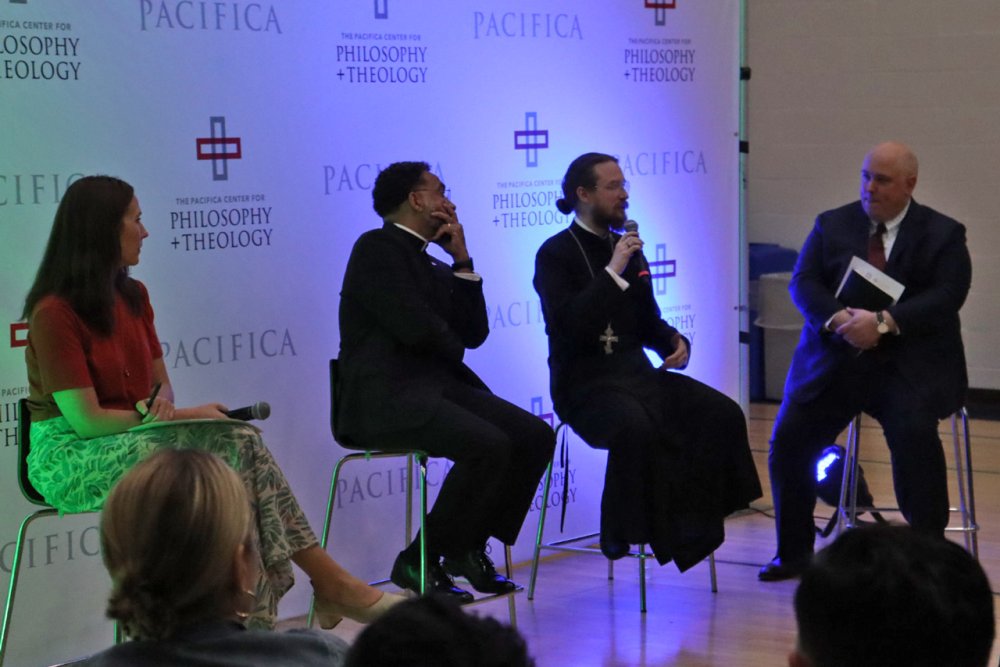Leisure at the Lyceum – Event Recap
October 27th, 2023
leisure at the lyceum - bringing together what is being torn apart
It was a great couple of days at Pacifica Christian High School. The faculty and administration of Pacifica’s Center for Philosophy and Theology met to craft vision, toured classes to see students in action, witnessed curricular and pedagogical connections, and prepared for a day-long honors seminar and evening event for the community. The events were a collaborative effort with our partners at Pilgrim Lutheran Church led by Pastor John Nunes.
Strolling through the pacifica lyceum
Leisure at the Lyceum, the center's guest speaking series, is focused on “bringing together what is being torn apart.” In a more fractured world, we aim to have thoughtful conversations to help us think and live well. The Lyceum was Aristotle’s school in Athens during the 4th century. As they strolled through nature, Aristotle and his pupils discussed mathematics, philosophy, and logic. They engaged in physical exercises like boxing and wrestling. Lyceum means to stroll. To make time to reflect and consider. When we reflect upon what we are learning, the possibility of intentional growth and transformation happens. The evening guests and the students in the seminar reflected, listened, and engaged in meaningful conversation at Pacifica’s Lyceum.
the shaftesbury seminar: is beauty subjective?
 Partnering with Pilgrim Lutheran Church and the Center for Religion, Culture, and Democracy, Pacifica students spent the day in an Honors Socratic seminar, The Shaftesbury Seminar, led by Trey Dimsdale and Pastor John Nunes. They discussed ideas around beauty and truth. Using texts from Aleksandr Solzhenitsyn the students asked if art is objective and subjective. If we have a broken nature, do we see things as they really are? Did art and beauty proceed humanity? The afternoon was closed as Pastor John Nunes recited poetry in our quest for the beautiful. It was a remarkable day of students and staff in thoughtful conversation.
Partnering with Pilgrim Lutheran Church and the Center for Religion, Culture, and Democracy, Pacifica students spent the day in an Honors Socratic seminar, The Shaftesbury Seminar, led by Trey Dimsdale and Pastor John Nunes. They discussed ideas around beauty and truth. Using texts from Aleksandr Solzhenitsyn the students asked if art is objective and subjective. If we have a broken nature, do we see things as they really are? Did art and beauty proceed humanity? The afternoon was closed as Pastor John Nunes recited poetry in our quest for the beautiful. It was a remarkable day of students and staff in thoughtful conversation.
“It is the hardest thing in the world to be a good thinker without being a good self-examiner.” – Anthony Ashley-Cooper, 7th Earl of Shaftesbury.
Friedrich Nietzsche and the Decline of Christian Culture
What is the impact of a less religious society?
Following the Shaftesbury Seminar, we welcomed over 100 parents, students, faculty, community members, and friends to consider important questions about faith and culture. Mr. Trey Dimsdale delivered a keynote lecture on the effects of philosopher Friedrich Nietzsche on Christian Culture. The talk delved into the works of Alexander De Tocqueville and Aleksandr Solzhenitsyn. After the keynote, a panel including Pastor John Nunes, Pacifica board member Jeff Ennis, and Pacifica Associate Head of School for Academics Dr. composed a panel led by Father Alexander Earl, Director of Pacifica’s Center for Philosophy and Theology. The group engaged in discussion over societal problems and possible solutions. The evening ended as Stephan Roberson, Assistant Director of the Center, summed up the evening and led us to dessert and coffee.
One of the highlights of the evening was the multi-generational nature of the audience. There were touchpoints across the community, from Pacifica students, alumni, and parents to those in the classics crowd. Additionally, there were a number of institutions represented: Pilgrim Luthern Church, Pacifica Christian High School Santa Monica, Pacifica Chrisitan High School Orange County, Risen Church, The Center for Religion Culture and Democracy, In Christo Veritas Educatio Foundation, and the NOVA Forum at USC.
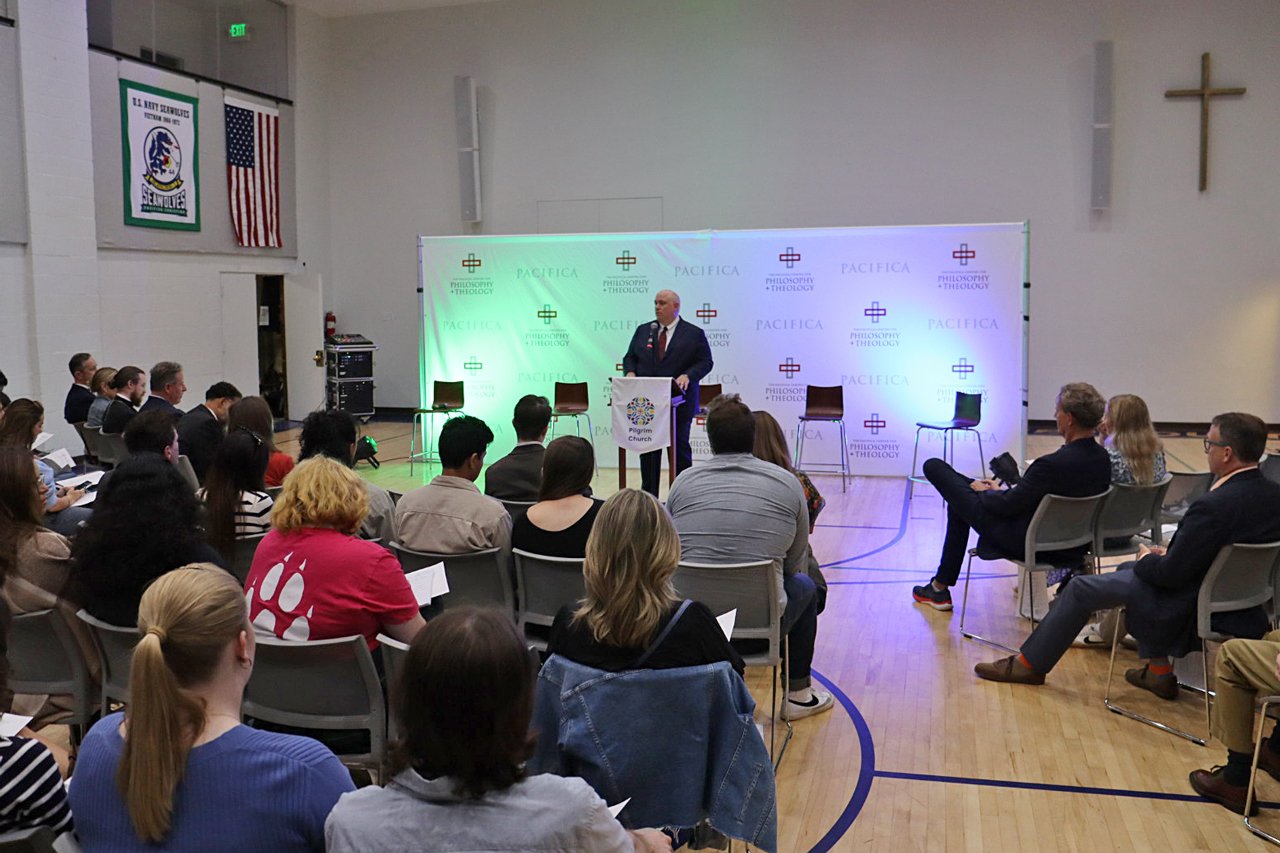
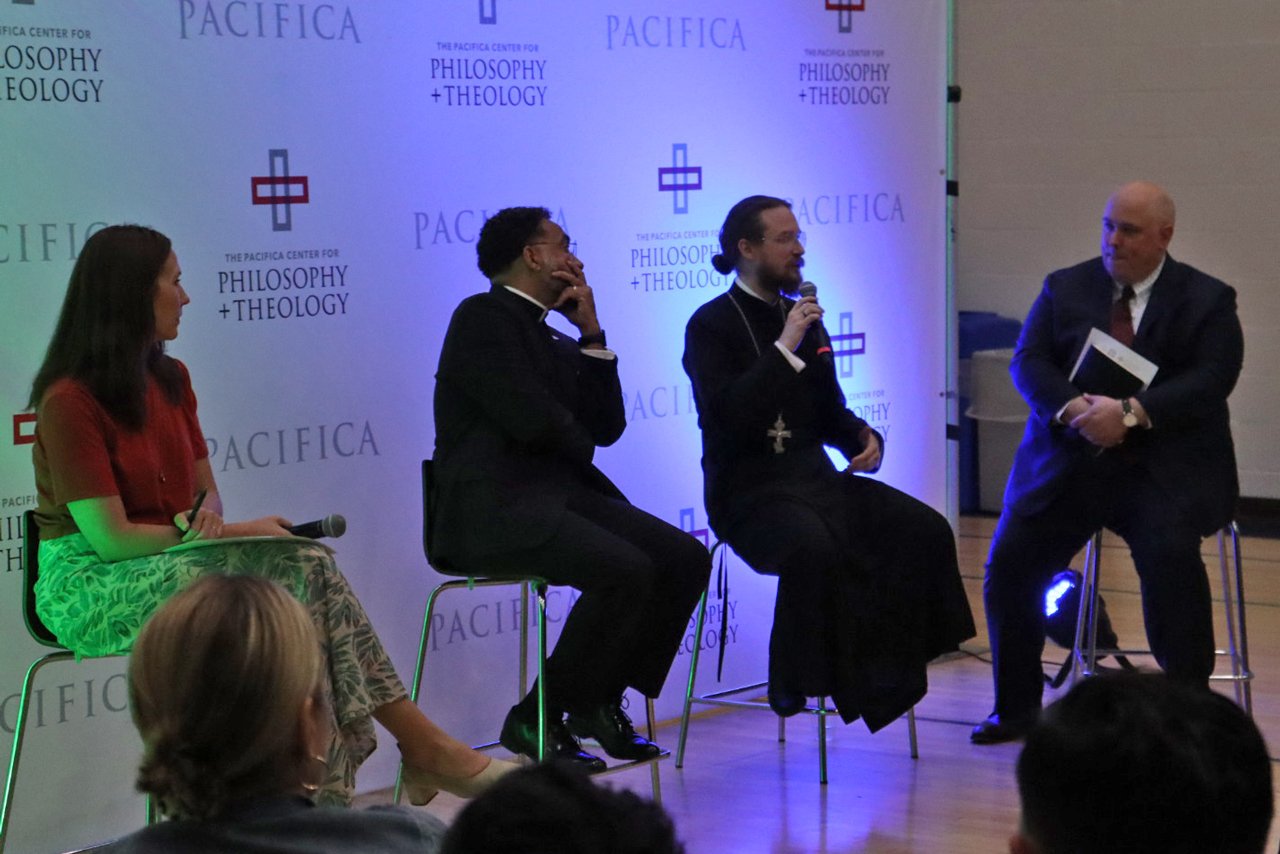
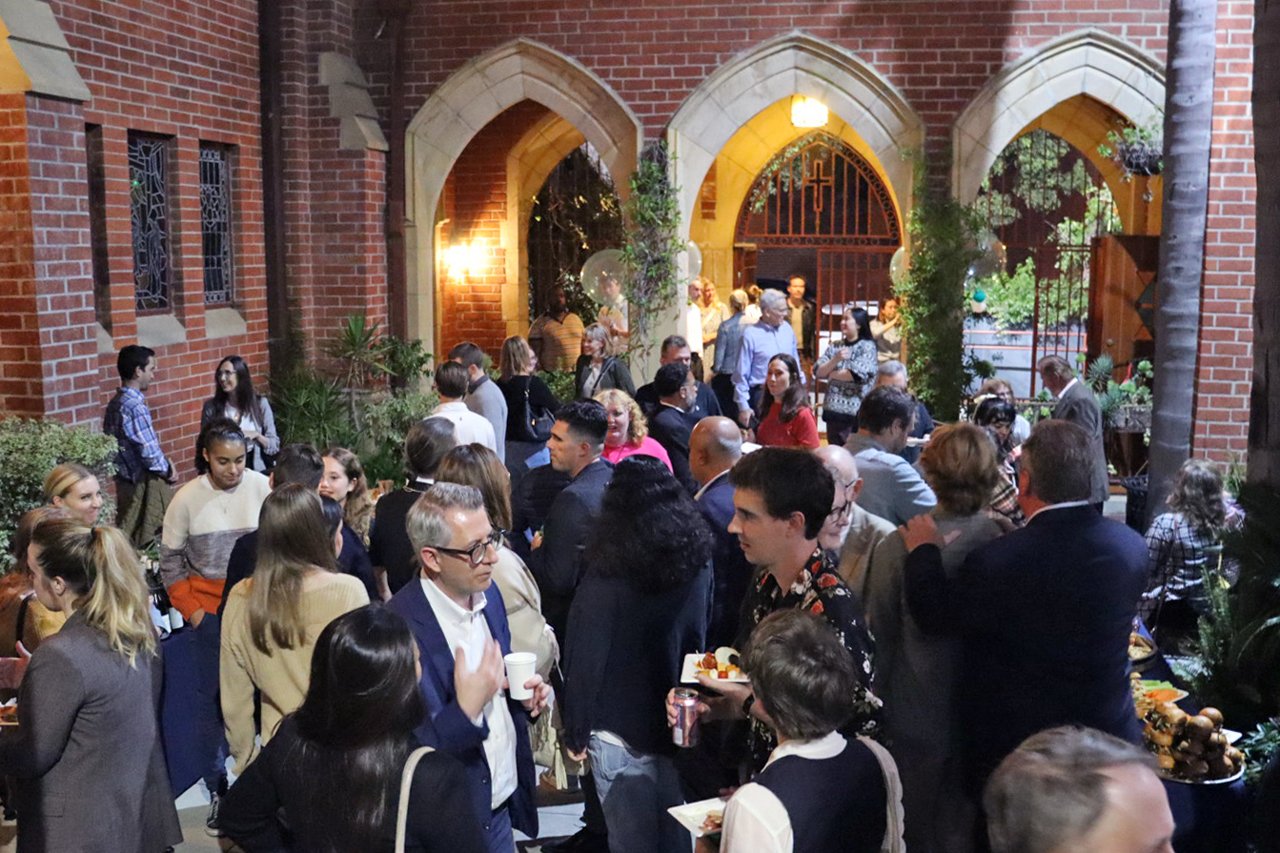
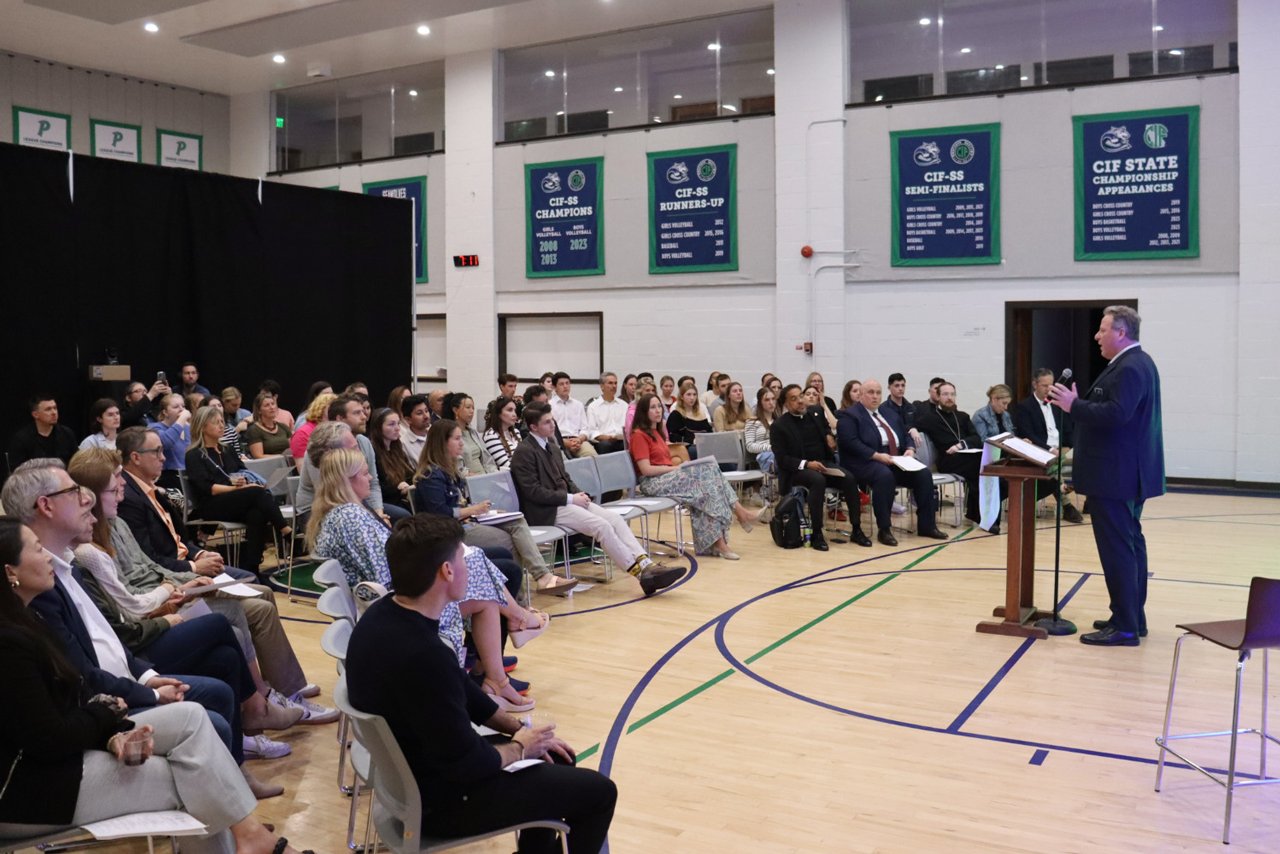
 The Pacifica Center for Philosophy and Theology
The Pacifica Center for Philosophy and Theology
The Pacifica Center for Philosophy and Theology publishes articles, hosts events, and implements a curriculum to promote human flourishing. With a foundation in the Old and New Testament, students launch into Moral Philosophy, engaging Aristotle's Nicomachean Ethics, Ancient Philosophy, a close read of Augustine’s Confessions, Political Philosophy, Modern Philosophy, and the atheism of Marx, Nietzsche, and Freud, ending with Patristic Theology as they consider the first 1000 years of the church. This arc integrates with students' education in history, English, and language and asks students important questions about life and reality as they consider bringing together what is being torn apart.
Categories
Recent Articles
10 Reasons Content Box

10 Reasons to Choose Pacifica


